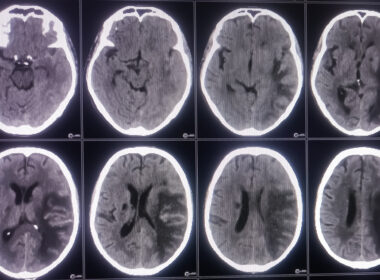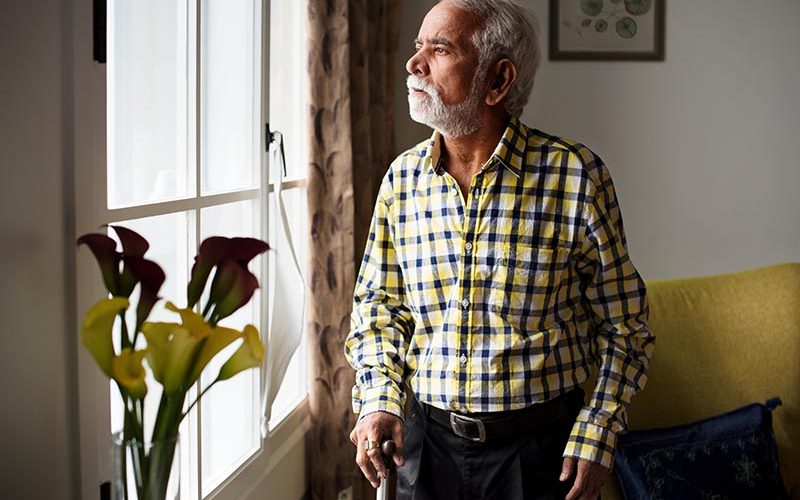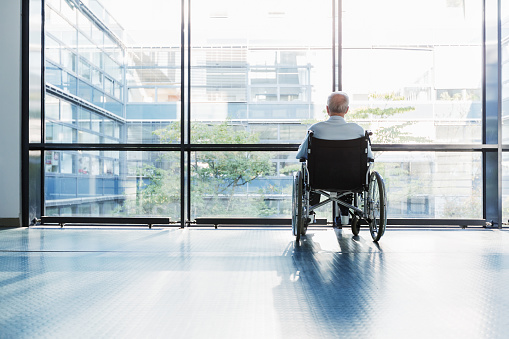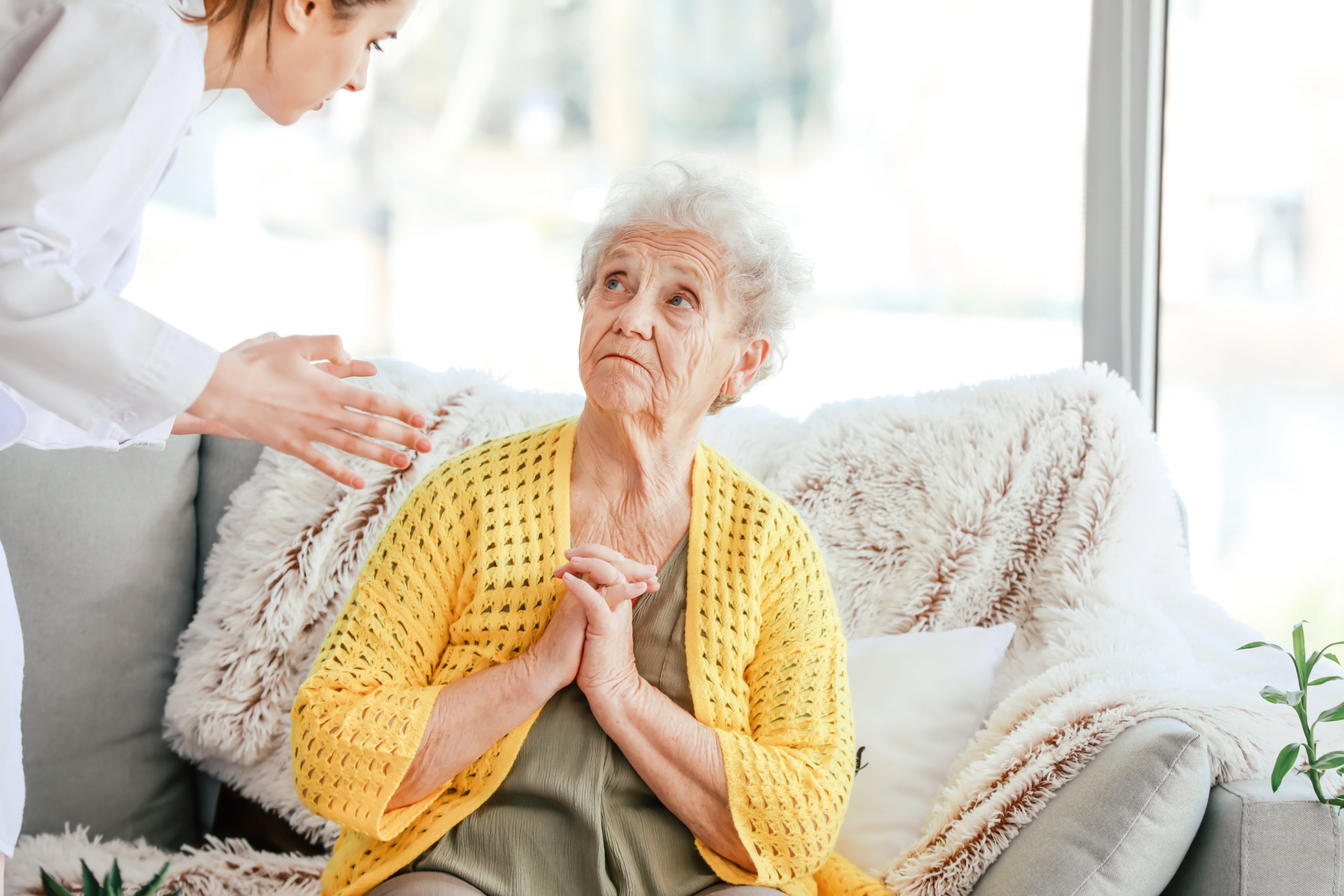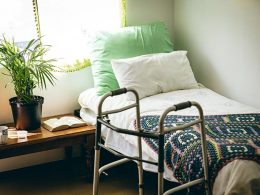Perhaps, the greatest fear older adults face is dying alone without care and away from familial love. Our old folks, like babies, need all the love, care, and attention they can get—yes, even in the later stages of their lives.
Of all age grades, infants and seniors stand the most risk of human rights violations. Owing to their mental incapacity and inability to report infringement.
In this article, we’ll educate you on the liberties of an older adult and how to sue for injustice when your rights are infringed.
Get comfortable, you’re in for a long and informative read.
Rights of the Residents in Nursing Homes
Human rights are moral and ethical principles that characterize a democratic society. Every human has rights, and the elderly who cannot enforce them are maltreated.
Since the aged rely on other people to assist them with intimate activities like personal hygiene, feeding, and getting in and out of bed. You might intrude on their personal space, so you should give them privacy when due. Seniors are also entitled to choose how they want things done rather than imposing your wishes.
According to The Nursing Home Reform Act, as the nursing home resident, you’re entitled to the following rights:
- Freedom to choose your care and medications
- Freedom to a respected private space
- Freedom to interact with social fellow residents and family members
- Freedom to communicate your grievances and dissatisfaction without fear
- Freedom to create, review, and be duly informed of changes in your care plan
- Freedom from abuse
- Freedom from neglect
- Freedom from exploitation
- Freedom from discrimination
- Freedom from physical restraints
- Freedom to participate in nursing home residents’ and family activities
- You should get treatment
- You should get the right care for your case
- You shouldn’t be stuffed with medicine to make you quiet or control your behavior
- You should be treated with dignity
- You should be able to address your physical, psychological, and social needs
We believe the listed rights in the nursing home reform act are a befitting summary of human rights for the elderly. When any of the above rights are infringed, you can take action as family members against the nurses and nursing home for unfair treatment.
What is Elder Abuse in Nursing Homes
According to federal and state laws, this is when a nurse/caregiver harms a resident by action or inaction. When this occurs, it’s an infringement on one or more of an older adult’s rights.
The federal government dictates that everyone including adults are entitled to the rights—equality, fairness, dignity, etc. So, you’ll be committing a crime when you violate an older adult’s rights for whatever reasons; whether they are refusing treatment or simply annoying. Every person is entitled to special protections by the government and has legal rights to voice grievances when they are abused.
Elder improper care is a legal issue, a deviation from our belief system as a nation and will not be tolerated, no matter how minor.
If left unchecked, Elder it will negatively impact our values, public health, freedom, and resources.
Nursing homes happen to be the most frequent site where this happens, and we should make rest homes safe for older adults and, in the long run, ourselves. This maltreatment comes in different forms and degrees, including neglect or negligence, physical, emotional, sexual, and financial fraud.
Although elder this can happen anywhere, even in home care, 80% of reported cases are in nursing homes. Since reports claim that 1 of 3 nursing home staff has committed at least one form of elder abuse. Then, how skilled should caregivers be in a nursing home?
Nursing home abuse is a global concern! A scary report by the World Health Organization (WHO) states that 1 in 6 adults aged 60+ suffers from nursing care facility mistreatment through negligence in medical treatment, use of chemical restraints etc. More frightening is the U.S. Department of Justice’s survey that only 1 in 24 cases is reported.
According to the American Geriatric Society, only 1% of registered nurses are skilled in geriatrics (elderly care). The U.S. Census proposes that by 2030, the larger part of the population will be older adults (people over 65). That’s scary because there’ll be an imbalance in the ratio of certified caregivers to seniors.
There’s a reduced chance of abuse or maltreatment if an older person is cared for by a geriatric nurse. A geriatric nurse understands an older adult’s physical, emotional, social, financial and other personal needs and is the best caregiver.
Gone are the days of burying nursing home poor care cases. People are now fully informed and help is now nearer than ever. Reach out to us for a free evaluation of your case and see if you’re entitled to compensation.
See Also: Cast Study: the Elderly and Medical Malpractice
Types of Elder Abuse in Nursing Homes
Human rights breach of the elderly occurs in different forms. They include:
NEGLECT OR NEGLIGENCE OF NURSING HOME RESIDENTS
Older people are neglected when they get substandard care with little or no monitoring. Failure to meet basic needs like providing proper hygiene and clothing, food, water, accommodation, and medications are signs of neglect that should be addressed immediately.
Here’s an ugly case of neglect and negligence:
Abby was relatively healthy and energetic for a 98-year-old before she was moved to a nursing home, a decision her family regretted. One day during a bath, she fell and injured her hip. The fracture was left untreated, and Abby passed away weeks later.
EMOTIONAL
Also called psychological abuse, this is when words and subtle actions are used to hurt the feelings of an older adult.
It includes:
- Blaming or accusing them of things they didn’t do
- Facial gestures and nonverbal methods of inflicting fear
- Harsh scolding
- Hurling insults or other forms of verbal torment,
- Discouraging them to communicate freely
- Isolation
- Name-calling
- Screaming at them when refusing medical treatment
- Trying to intimidate and belittle an elder
- Yelling
PHYSICAL
Physical assault is when an older person feels pain or injury from a caregiver’s actions.
Physical abuse includes, but is not limited to, the following:
- Being forcefully locked in a room, restraints
- Hitting or slapping
- Illness caused by lack of proper care
- Kicking
- Shoving or pushing
- Strangling
SEXUAL
Sexual abuse is common among Alzheimer’s or dementia patients and seniors who can’t communicate their discontent.
An older person is abused when forced to engage in non-consent sexual activities such as:
- Fondling of private parts of the person
- Penetrative or non-contact sex
- Sexual gestures to the nursing home resident
- Viewing obscene pictures
- Verbal harassment
FINANCIAL AFFAIRS
State laws describe financial abuse in a nursing home as the forceful or deceitful use of an older person’s finances. It involves paying bills with their credit card, coercing them into signing off their assets and properties or forcefully collecting money from them. You can file a lawsuit for financial abuse when a senior’s belongings and properties are misused and exploited.
For clarity, here’s an example of nursing home financial legal issue:
Bruce’s son brought him to a nursing home. Bruce likes it here and has made some friends. When hanging out one day, Bruce tells a fellow resident about his property in Ohio. Bruce’s nurse overhears the conversation and unleashes a string of inhuman treatments on him.
She starts by ignoring his hygiene and withholding his cane. The nurse locks him indoors, bullying and pressuring him to hand over his assets and sign the documents in her name. Bruce is hurt and left with almost no choice but to give her his property.
What can he do?
He should reach out to JustPoint.
Remember, no matter how minor abuse is, you have a right to feel safe. Get help now!
Signs and Consequences of Elder Abuse in Nursing Homes
While victims may suffer from little or no injuries, other consequences like sepsis may be life-threatening and worsen health conditions or cause premature death.
Unless it’s physical or sometimes sexual, the signs and consequences of nursing home abuse can go unnoticed. You might never know until it’s too late. Thankfully, there are ways to uncover abuse depending on the form.
Here’s a detailed list to guide you:
PHYSICAL ABUSE:
- A sad disposition
- Anxiety or a fearful, reserved, and unusual behavior
- Frequent or unexplained reasons for hospitalization
- Unexplained injuries, bruises, and scars
NEGLECT OR NEGLIGENCE:
- Lack of clean and proper clothing for the weather
- Malnutrition and dehydration
- Poor personal hygiene
- Sepsis
- Thumb-sucking
- Unclean environment
- Welts and painful bedsores
EMOTIONAL ABUSE:
- Anxiety or a fearful, reserved, and unusual behavior
- Deep sighs
- Depression
- Low self-esteem
- Mumbling
- Post-traumatic stress disorder (PTSD)
- Rocking back and forth on a chair
- Soliloquizing
- Swollen eyes
SEXUAL ABUSE:
- Unexplained scratches, bruises, and cuts around the private parts
- Unexplained STDs or infections
FINANCIAL ABUSE:
- A “new friend” who is open to receiving gifts
- Unpaid bills
- Unexplained changes in credit card bills and details
- Unexplained financial status
- Unexplained spending patterns
- changes in the living will without informed consent
Just as rotten eggs find their way into a good crate, so can the best nursing homes hire a bad caregiver. Also, no nursing home uses “Bad Nursing Home: Stay Away” as their banner.
So instead of worrying about factors beyond your control, why not focus on choosing a good rest home. (Research shows that older people recover from ailments faster when treated in a good environment.)
See Also: Major Causes of Misdiagnosis
Preventing Elderly Injustice in Nursing Homes
The first step to preventing and suing for elder abuse is awareness—accepting that it exists. So, we must employ aggressive measures to fight against rest home abuse and provide seniors with deserved quality health care.
- Engage in actions that protect and promote emotional well-being like counseling, visitations, and donations.
- Create helplines and build substitute shelters to rescue older adults from bad rest homes.
- Please make yourself available to speak with older adults and their caregivers.
- Many seniors have difficulty standing up to abuse, but your reassurance can go a long way to show them that they can trust and rely on you.
- Set up money-management, investigative, and disciplinary teams to fight abuse.
- Report abuse to the proper authorities.
- Nursing homes must meet the standard of quality before being licensed by the appropriate authorities.
Can I Sue for Injustice to the Elderly People
Yes. If your loved one has suffered from elder abuse, an experienced attorney who understands the federal law can help you indict a nursing home. You don’t have to worry about the process because we’ll link you with attorneys that have a record in dealing with elder abuse cases.
Although the compensation for nursing home abuse is not on the high side because older abuse doesn’t affect the past, present, or future earnings. The money paid from the lawsuit can sort the medical bills and help the victim live a healthier and more peaceful life.
Who Can I Report Nursing Home Abuse to?
Failure to report an abuse makes you an accomplice, so reach out to these sources once you discover nursing home abuse:
- A nursing home ombudsman
- The police
- The family of the abused
- An elder abuse attorney
- The nearest Adult Protective Service (APS) branch
These authorities work in different ways and will take different actions but will ensure that they investigate and fish out the perpetrator(s).
Now that you know who to report to, the well-being of your loved one is in your hands. Contact us today and see if we can help you. The earlier, the better.
How can JustPoint Help you Sue for Justice
The first step is is to know the residents rights at the nursing home, and their legal rights as enforced by the state law. Although no matter of compensation will bring back a loved one, Justpoint will bring abused cases to light and get justice for victims. This way, you protect someone else from abuse, at least from the same person.
Justpoint will match you with an experienced attorney conversant with the requirements of your case. This nursing home attorney Please note that we’re not profit-oriented; instead, we’re focused on engineering a social change to build a trustworthy legal litigation system.
Did you, or a loved one, suffer from nursing home abuse? Contact (347) 560-4064 to tell us what happened.
We can help you get justice.
See Also: Everything You Need to Know About Mental Health Misdiagnosis
Long and Short
Aging is challenging, seeing your loved ones pass away, driving seems impossible, and engaging in activities you love is hard. As the days roll by, you lose independence while confined to your surroundings.
Hence, we must make our old folks feel loved and cared for. That way, they can hold on to the things that matter to them.
Rather than lamenting right infringement, we should understand and uphold the rights of old folks and learn to identify, prevent, and report abuse.




